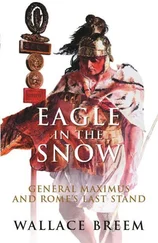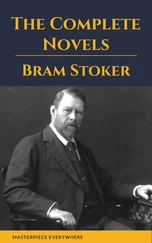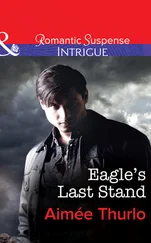For over five hundred days we had halted their march, checked their ambitions, forced them into hunger, made them watch their wives starve and their children die. Every death in that camp of every man, of every woman, and of every child, no matter what the cause might have been, was blamed on us. We were the enemy and they would destroy us out of fear and out of hatred and out of revenge. They were a christian people, and it must be so, though only a pagan, perhaps, could understand.
The south island, closer to the east bank than the others, was quickly surrounded and the worst of the early fighting took place there. It was completely protected by a high palisade and wooden towers, from which our archers shot them down while they beat at the wooden defences with their axes. They reached for it over the piled bodies of their dead, and I knew it would not be long before we were over-run. They had ladders and poles and ballistae of their own, crude affairs, but effective enough, and I could see that these were already in action, from the fireballs that came from the east bank. The northern island was under fire now, and the column advancing on the bridge had been checked by Barbatio and his ballistae. They tried to spread out and encircle him but the fire power of the defenders was too great, and the tribesmen wavered and then broke back to the protection of their own bank.
By midday the garrison of the south island were in difficulties. They were completely surrounded; our fireballs were neutralised by the snow and ice, and all our efforts to dislodge them proved a failure. I nodded to a waiting man and a trumpet sounded; and the garrison, who had not lost a man, fired the positions they had held so well and turned and cut their way out and retreated grimly, in testudo formation, back across the ice to the harbour area. Had it been summer, or even a normal winter, the island would have been a furnace, a wall of fire they could not penetrate, but the snow again neutralised the effects of the fire, and though some damage was caused, it was not great. When the flames had died down the tribesmen crowded on to the island and used our broken defences for cover while our ballistae from the camp fired on them without pause.
“Shorten the range,” I said. “The ice is hummocked badly on this side. It will slow them up considerably.”
“We shall never stop them,” said a soldier, panic in his voice.
“Pull yourself together,” I said. “These are only men, not gods.”
The lower island was in difficulties now and the enemy’s losses were enormous.
“Fire,” shouted Fabianus, and the arrow hail flew from the walls at the column climbing the ice ridges once more towards the broken bridge. Even when they reached the bank they would have an outer palisade, a triple row of sunken stakes with iron hard points, between them and the ditches. They would have to climb their own dead to reach the fort at all. I did not think that their ration of courage would last that long.
All afternoon the fighting continued. The enemy were held in check in their efforts to take both the harbour and lower islands. They had failed to storm the positions and crouched behind their own dead, flicking arrows at our men whenever they showed themselves, and waited for their chiefs to make a decision. Their waggons lined the east bank now and groups of horsemen were plunging down the slope onto the ice, while there was a constant movement to and fro, of men carrying arms and bundles of arrows. By now, however, Barbatio was in difficulties. He had been half encircled by the enemy, and the Vandals were moving across the river to his right, keeping out of range and probing the defensive power of the town walls. It would not be long before they outflanked the town altogether.
Out of the corner of my eye I saw the movement of horsemen upon the ice. I touched Fabianus upon the arm. “Good luck. May fortune smile on us all. I will see you later.” I ran down the steps, mounted my horse and cantered out of the camp and up the smooth slope towards the road and the ditches where my legion now stood at arms. They cheered me as they saw me coming, and I joined Quintus on the ridge where the cavalry stood in lines, dismounted and shivering a little in the cold. “They cannot keep this up,” I said. “Oh for six legions, Quintus. Give me six legions and I would save Gaul in an afternoon.”
It was beginning to get dark now; even so I could see that the garrisons of the two remaining islands were in difficulties. Fires were burning at several points within the defences, and the enemy, aided by make-shift wooden shields, had closed in on the palisades on the east and were hurling rocks and missiles at them, while others were battering at the timber with a handheld ram.
An hour later darkness fell, and all night long we could see a procession of torches crossing the river as the tribesmen moved backwards and forwards with supplies of food, fuel and weapons. All night they kept up their attacks and I could see the fireballs hurtling outwards from the bridge where Barbatio made his stand, and hear the cries of the legionaries in the fort below me as they manned the walls, hour after hour, in the freezing cold. When dawn came I received a signal to say that the tribesmen had enfiladed the town on the south side, had been repulsed in their attacks on the old camp, but were pressing heavily against the walls of Moguntiacum. A signal from Fabianus informed me that a party of men had crept under the bridge in the night and were trying to get a fire going. Barbatio had made a sortie to dislodge them, but without success. It would not be long before he was forced to retreat.
All day they fought. Fabianus’ fort was too strong for them, so they concentrated their attacks on the islands and upon the town. By the afternoon it became apparent that the islands could hold out no longer. A message from Didius, in command of the harbour area, asked for instructions and begged for permission to withdraw. I agreed. A trumpet blew the retreat and the garrisons there broke out and backed across the ice to the harbour where an ala of auxiliary cavalry was waiting to cover them. The tribesmen massed along the edge of the river, awaiting the signal to move forward, while the horde that had captured the south island the previous day, moved against the south wall of the town and fort. Foiled in their efforts to break through the palisade and the stakes, they prowled along the walls and established themselves in the ruined theatre, seeking a weak point at which to attack, while others entered the harbour area and engaged in hand to hand fighting with the rear-guard of Didius.
Presently, a great mass of horsemen moved from behind the harbour island and came up towards the bank. They were caught in a cross-fire projected by both my own ballistae and those of Fabianus and, before they had moved a hundred yards, had lost a third of their men. Those who still remained mounted, rode on to the bank and then turned right, intending, no doubt, to head down river. They checked at the sight of the auxiliary camp and then made towards it at an easy canter.
“They think it is a dummy still, which it was,” I said to Quintus. “Now watch.”
Quintus said calmly, “Someone is going to get a big surprise.”
A cavalry ala came riding out of the camp fast, in three squadrons. The squadrons closed up smoothly and rode towards the enemy. At the very last moment they moved effortlessly into the charge and we could hear the crash of arms as the two groups met. Our men rode straight through them, turned and rode back. The Vandals broke and fled, and those that managed to reach the ice were killed by the archers in Moguntiacum fort.
“Well,” said Quintus. “How does it seem to you?”
I looked towards the east. The entire width of the river was covered with their dead and their dying, and the ravens circled ceaselessly above, waiting to keep them company.
Читать дальше












